
Summer is prime time for wild camping. This is among the most enjoyable of outdoor activities, and one that's open to all since it demands no special skills or finely tuned fitness. Only a basic minimum of gear is needed, and there's a range of stuff available to suit most budgets. But what about the legalities? That's a bit less straightforward.
After dark the hills take on a slightly mysterious character. Walkers who don't occasionally sleep around are missing out on so much: a cheeky evening skinny dip in a pristine high tarn, straight from your tent; sipping on a hip flask under a starry sky free of light pollution; the call of a cuckoo echoing through misty woods at dawn – simple pleasures, but uncommonly effective. Camping or bivvying somewhere secluded in the hills gets you closer to nature for longer, allowing you to absorb the silence and solitude in unhurried contemplation long after the daytime hordes have trooped off to the pub. It may be all in the head, but the feeling of connectedness to the land seems stronger when it isn't shared with gangs of fellow human beings.
The legal status of wild camping is a little complicated, since it varies across the nations of the UK and even between locations in the same nation. Before heading off for the weekend it's probably worth looking into the status quo at your chosen destination.
England and Wales
The Countryside and Rights of Way Act 2000 (CRoW) was a major milestone in the century-long movement towards public access, giving a right to roam on foot across 865,000 hectares of hill, moor and woodland officially designated 'access land' in England and about 450,000 hectares in Wales. These areas are now marked on Ordnance survey maps. However the right to roam only applies to the designated areas, it's not a blanket right in the Scottish mould, and there are many grounds on which landowners can still impose temporary restrictions.
Imagine you've been out all day; the sun is setting and you've found a flat spot beside a beautiful deserted tarn; are you really going to make a long detour to go knocking on doors for permission? Me neither. In practise a fuzzy sort of compromise generally exists, with discreet camping often tolerated in isolated hill country far from farms and habitation. An unwritten rule of thumb in the Lake District for instance is that you're likely to get away with it on the open fells above the highest (intake) wall or fence. In this situation of course responsible behaviour is particularly important, always remembering that this is a privilege, not a right. The BMC issue useful guidelines.
Exception: Dartmoor
In certain defined areas of the Dartmoor National Park (most of the wild bits, really) camping without prior permission is officially sanctioned – the only place in England where this is the case. This map shows where.
'Backpacking and sleeping wild on Dartmoor is tremendous under clear skies' says the National Park Authority's website. 'Camping for one or two nights on the open land on Dartmoor is perfectly acceptable provided that you choose your spot sensibly and don't pitch your tent on farmland, on moorland enclosed by walls, on flood plains or on archaeological sites. Lightweight camping equipment should be used and large family frame tents should not be used. Please ensure that you pitch your tent discreetly at least 100m from a road and so that you are not visible from the roadside or in sight of residential properties.'
It's important to avoid disturbing wildlife particularly during the moorland lambing and bird breeding season, from 1 March to 31 July. Other guidelines are detailed in the Camping Code of Conduct.
Scotland
In contrast to other parts of the UK Scots have long enjoyed great freedom in the hills, and since the Land Reform (Scotland) Act 2003 made that official and gave Scotland some of the most liberal access laws in the world the difference north and south of the border has become even more notable. The statutory right of access to most land and water extends to a right to wild camp. Provided we behave responsibly walkers and climbers are free to roam at will over all open ground, forests, rivers and lochs, at any time of day or night, and to pitch a camp more or less anywhere suitable. However that doesn't mean anything goes. Access comes with strings; we only have a right if it's exercised responsibly.
Exception: Loch Lomond
With easy road access and idyllic scenery the east shore of Loch Lomond has long been popular with informal campers, both walkers on the West Highland Way and weekenders out for a party. Problems with litter, crap, fires, tree felling and booze-fuelled anti social behaviour (blamed, probably fairly, on the latter variety of visitor) have sadly led to the introduction this year of Scotland's first legal wild camping restrictions. New byelaws (reported here on UKH) have established a seasonal camping ban on a nine mile stretch of shoreline between Drymen and Rowardennan, between 1 March and 31 October. The area is being patrolled by rangers and police, and with a maximum fine of £500 this could be your most expensive ever campsite fee. The effectiveness of the byelaws will be reviewed after the first three years. Since similar problems occur at roadside locations elsewhere in the Highlands it's a fair bet that there will be wide interest in the results of the Loch Lomond experiment.
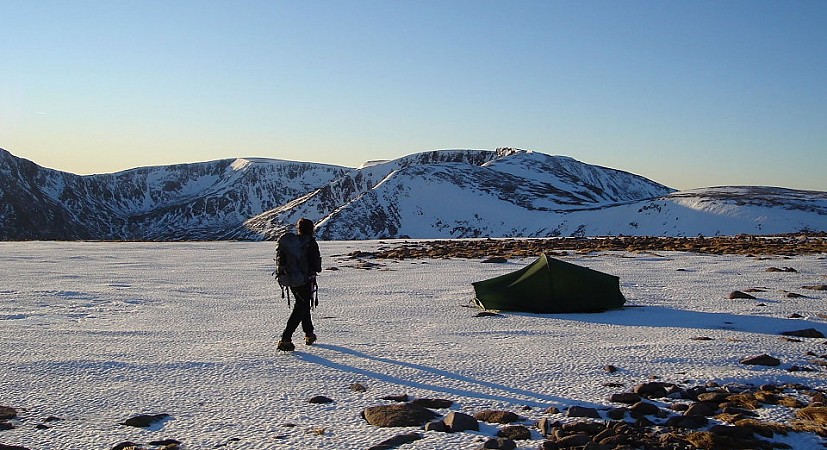
Northern Ireland
'Wild camping is only permitted in Northern Ireland with the landowner's formal or tacit approval. There are no rights as exist elsewhere in Europe' explains Ross Millar of the Countryside Access and Activities Network (CAAN). 'In areas well used for hill walking, such as the Mourne Mountains, wild camping is relatively common but most of this is done on public land (Forest Service or Northern Ireland Water, a publically owned body) or lands which are in 'commonage'. On purely private land, whilst strictly speaking permission should be gained from the owner, it is less common but largely tolerated. However, one problem that does exist in the Mournes is that due to their accessibility a lot of 'wild camping' is by youths who often leave considerable litter and damage. Discreet camping rarely causes any issues.'
Pitching up somewhere remote is of course perfectly possible. On my only trip to Northern Ireland to date I happily camped in the Mournes with no one around for miles to object, and local hillwalkers and climbers do likewise every weekend. But in Northern Ireland perhaps more than any other part of the UK keeping things low key seems essential. To that end bodies representing the interests of walkers and climbers, such as CAAN and Mountaineering Ireland (MI) have teamed up to promote the principles of Leave no Trace. Camping-specific advice includes: Disperse use to prevent the creation of new tracks and campsites; avoid places where impacts are just beginning to show; protect water quality by camping at least 30m from lakes and streams; keep campsites small and discreet; aim to leave your campsite as you found it, or better.
Republic of Ireland
Just as in Northern Ireland, hillwalkers and climbers in the Republic do not enjoy statutory access rights in the hills. There are few rights of way, and no right to camp at all. Care and consideration are key.
'Most people who wild camp in the [Irish] mountains are responsible and leave no evidence of their activity, but these people typically keep a low profile, choosing high and remote locations' says Helen Lawless, Hillwalking, Access & Conservation Officer at Mountaineering Ireland.
'In general people camp less in the Republic of Ireland than in the North, but we do have a number of areas, particularly in Co. Wicklow which show the evidence of poor wild camping behaviour – litter, damage to trees, fire rings etc. These spots are in forestry or river valleys, usually not more than 1km from the road. On the plus side we have more extensive areas of upland in the south than in the north, including lots of rugged terrain which offers scope for longer hillwalks and lots of top-class spots for wild camping – e.g. in Donegal, the Nephins, Connemara, the Comeraghs, and on the Dingle, Iveragh and Beara peninsulas.'
Basic Dos and Don'ts
Each of the walker's and climber's representative bodies across the UK and Ireland issues their own set of camping guidelines. These all tread similar ground, emphasising a softly-softly minimal impact approach. Here are some basics:
- In busy areas try to remain out of sight to avoid attracting other campers to your location and to spread the load away from the obvious overused unofficial sites.
- Choose well drained ground that's less easily trampled and disturbed.
- Don't cut drainage ditches, and if you must move rocks then replace them after use – insects and plants will thank you.
- As a rule it is worth dismantling tents during the day. Setting up a base camp for several nights may generally be fine in Scotland, but if you're determined to do this elsewhere then make sure you pick an out-of-the–way spot, and keep numbers low.
- Light no fires; are they ever worth the potential damage? A recent spate of serious moorland fires across the UK has been a stark reminder of this. You're likely to be cooking on a stove anyway, and if you're cold then put on a jacket.
- Going to the (in a) bog. If it's a poo then pick your spot with particular care; at least 30 metres from streams or lakes is a bare (cheeked) minimum. With a lightweight trowel, carefully cut out a square of turf. Do the business and bury your excrement at least 15cm deep, replacing the turf once you're done. Pack out used toilet paper in a ziplock bag, or (very carefully) burn it, bearing in mind that whatever your intentions it's not very green to start a moorland fire by mistake. Female sanitary products don't decompose and should always be taken home as litter.
- Don't wash with soap; even the eco friendly stuff is a pollutant in the fragile habitat of hill streams. Learn to love (or at least live with) your odour.
- Pack out all rubbish, including biodegradable waste. Fruit peel for instance does not quickly break down in the upland environment, and animals will scatter it about. If several parties leave this sort of thing at a popular site then it's soon effectively littered.
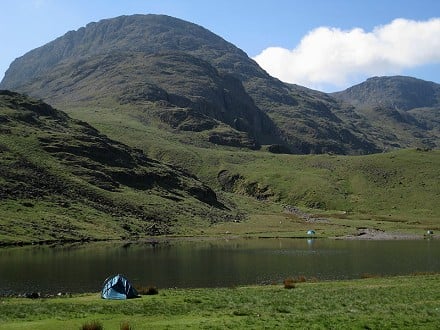
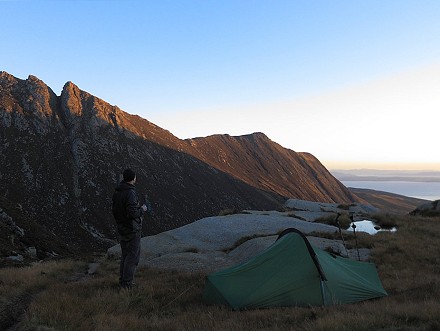
In short
Take nothing but photographs and leave nothing but a little square of slightly discoloured grass. If there's no sign you've been there then no one need ever know, let alone object.
Happy camping.
About Dan Bailey
Dan Bailey, UKH Editor, is the author of several guidebooks including Great Mountain Days in Scotland, West Highland Way, Ridges of England, Wales and Ireland - Scrambles and Climbs and Scotland's Mountain Ridges - A Guide to Scrambles and Climbs described as 'a work of considerable authority, I can recommend (it) unreservedly' by Chris Craggs.
Dan lives in Fife and has always had a passion for climbing and the outdoors. His work features widely in print and online media, from outdoor mags to Sunday papers.
[ articles_author() ]



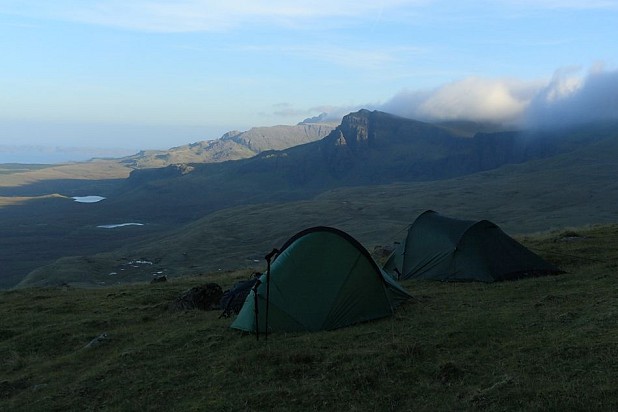
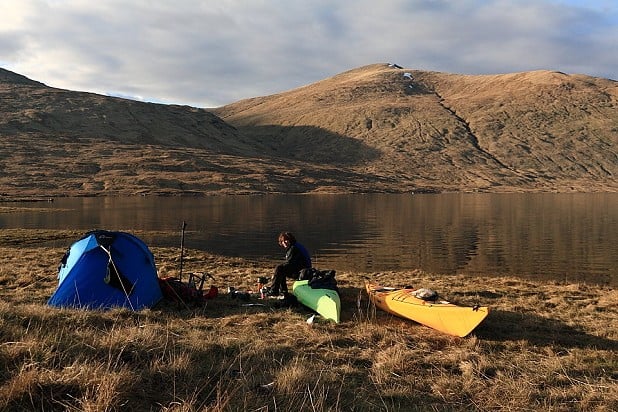
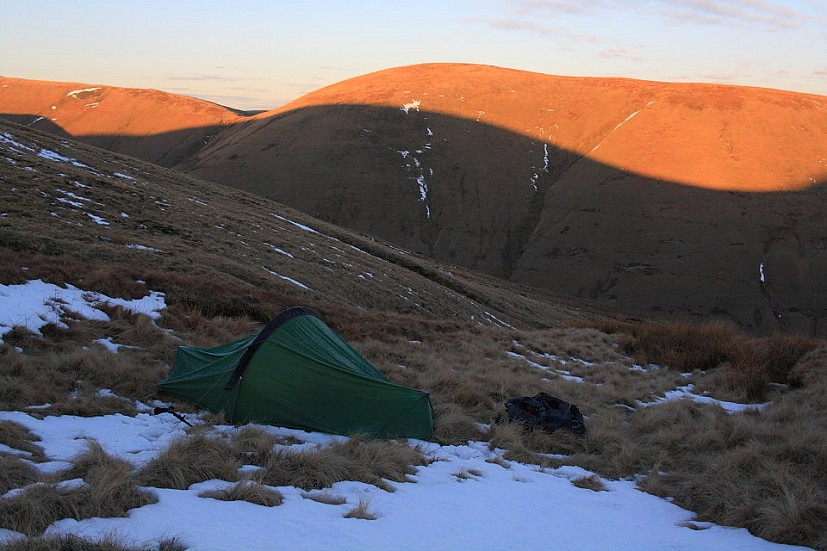
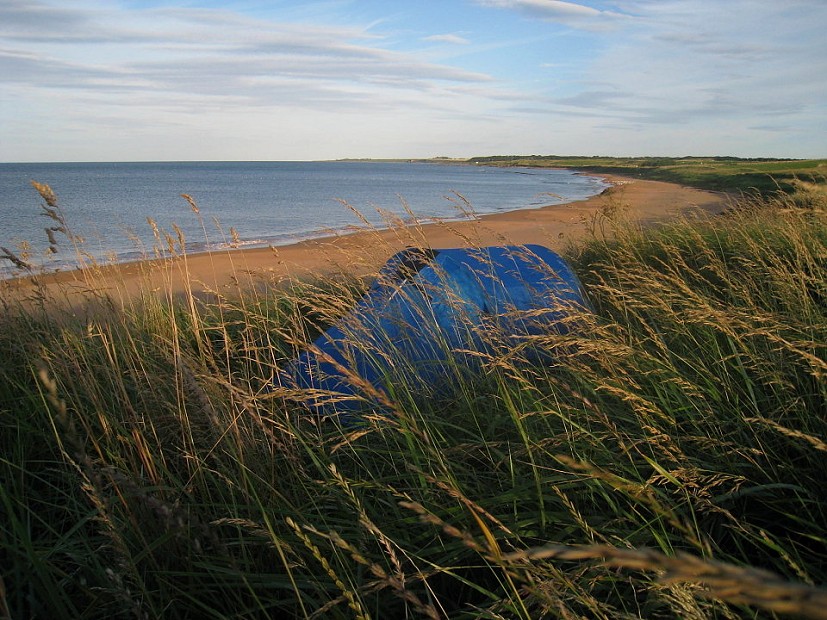
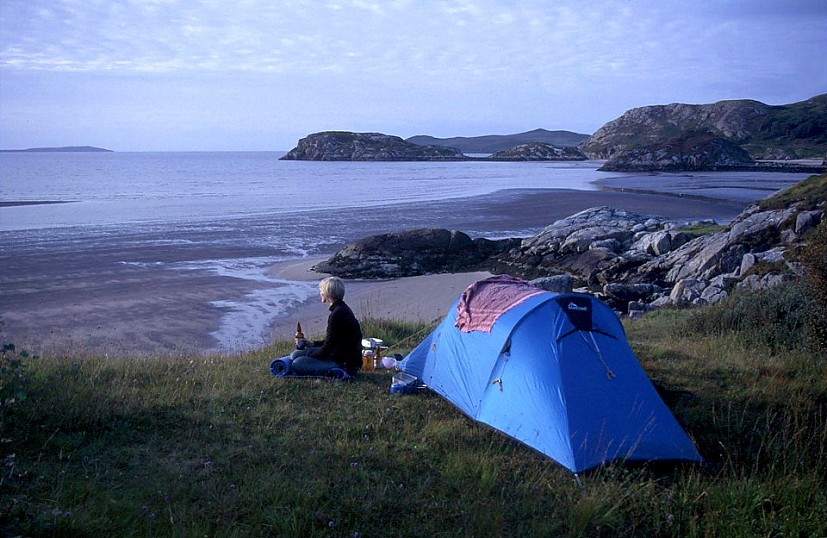
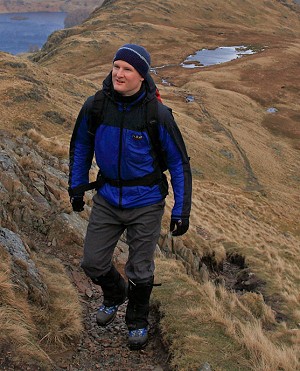



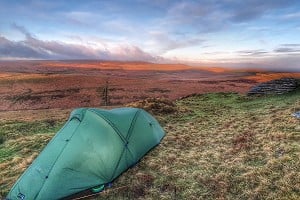
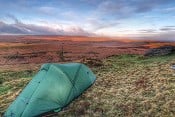
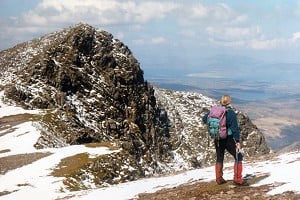
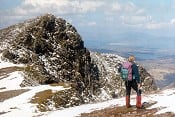


Comments